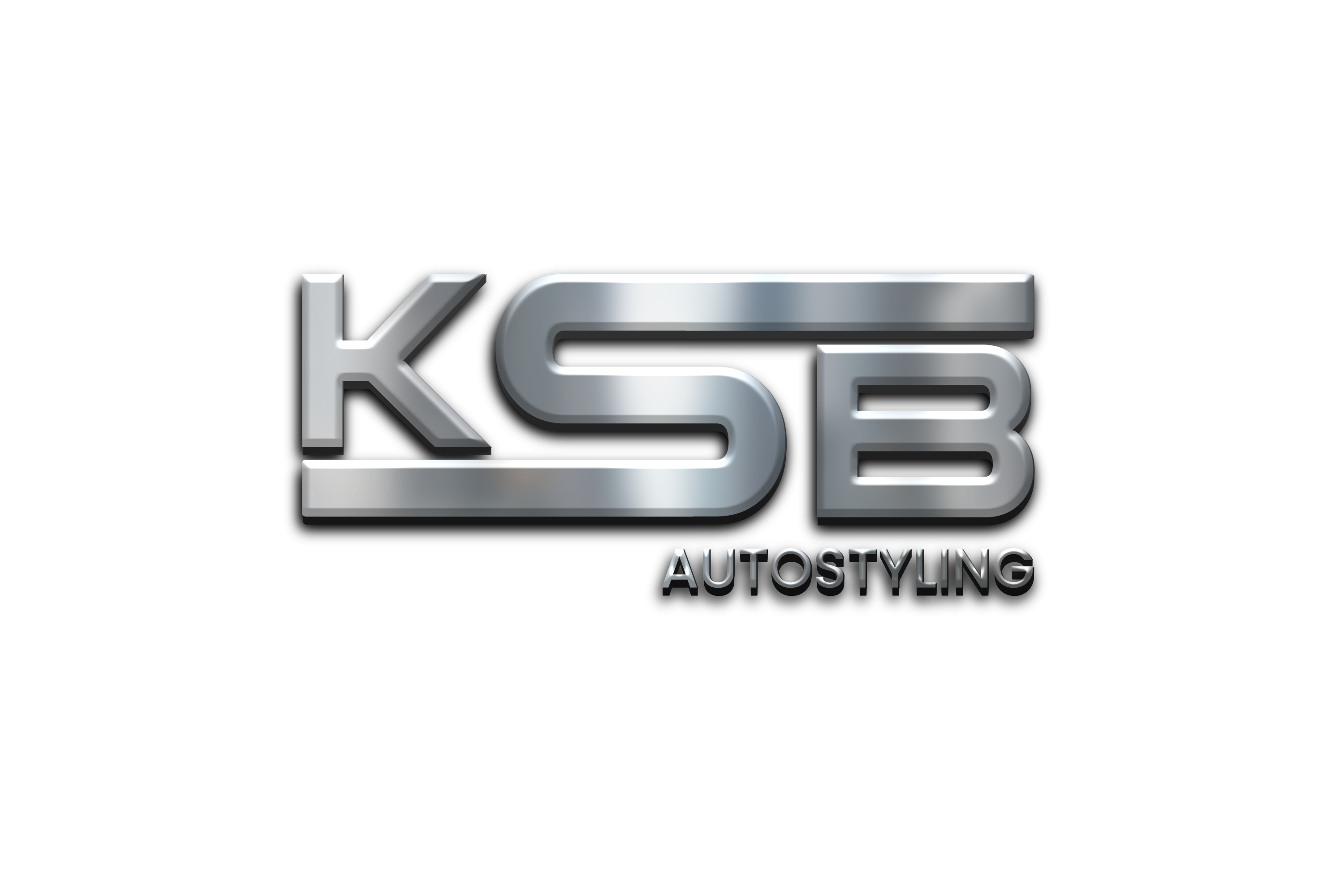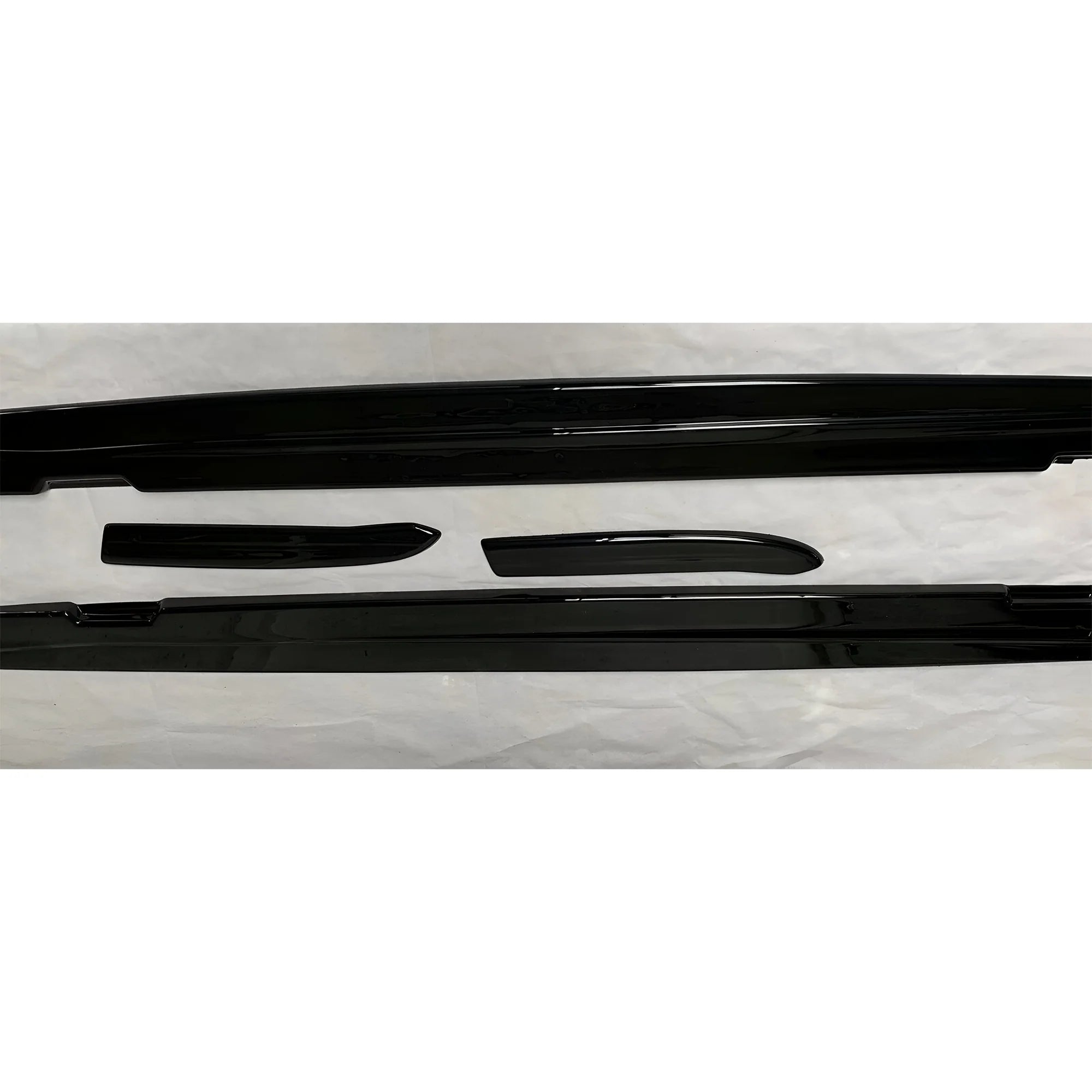
Ford 1.0 Ecoboost Engine Problems & Effective Solutions

You know what? I've lost count of how many times someone's pulled up at the workshop with a Ford Focus 1.0 EcoBoost and said "it's doing something weird." And nine times out of ten, it's one of about five or six things.
Don't get me wrong these engines aren't complete rubbish. I've seen plenty sail past 150,000 miles without major drama. But they do have their quirks, and if you own one or you're thinking about buying one, you need to know what you're getting into.
I've been working on these engines since they first landed in Focuses back in 2012. Seen the good, the bad, and the properly expensive. So let me walk you through the actual problems that keep cropping up not the internet rumours, but the stuff I've actually seen fail with my own eyes.
The Wet Timing Belt Disaster
Right, let's start with the big one. The one that's caused more headaches than anything else.
Early Ford Focus 1.0 EcoBoost engines we're talking about from 2012 through to about 2016 came with what Ford called a "wet timing belt." Sounds fancy, doesn't it? The belt runs in engine oil instead of being kept dry like a normal timing belt.
The theory was solid enough. Oil would keep it lubricated, make it last longer, and reduce noise. Except it didn't work out that way in the real world.
What actually happened is the belt started deteriorating way earlier than anyone expected. The rubber would break down, little particles would flake off, and suddenly you've got rubber bits floating about in your engine oil. Those particles can block oil passages, damage the oil pump, clog up the sump... it's a cascading failure waiting to happen.
I've seen these belts fail at 40,000 miles. Seen them go at 70,000. One customer had it happen at barely 30,000 miles. And when it goes, it doesn't just snap cleanly—it disintegrates. The engine loses timing, valves smack into pistons, and you're looking at a complete engine rebuild or replacement.
Ford eventually twigged this was a problem and issued recalls for certain VINs. They also extended the warranty on the timing belt for loads of affected vehicles. But not before plenty of people got absolutely stung with repair bills.
If you've got a 2012-2016 Focus with the 1.0 EcoBoost, check if your VIN is covered under the extended warranty. If the belt hasn't been replaced yet, get it done. Don't wait. The replacement interval is supposed to be around 150,000 miles or 10 years, but honestly, I wouldn't push it past 100,000 miles on these early ones.
Later models switched to a timing chain, which is miles better and should last the life of the engine. But if you're looking at a used Focus from those early years, the timing belt situation needs to be sorted or you need to walk away.
What It Costs to Fix
If you catch it before it fails just a preventative belt replacement—you're looking at £800 to £1,200 depending on the garage. Expensive, yeah, but manageable.
If it fails and takes the engine with it? Could be anywhere from £2,500 for a used engine swap to £6,000+ for a new one. I've seen people scrap otherwise decent cars because the repair cost more than the car was worth.
Coolant System Problems That'll Do Your Head In
This one's frustrating because it can be hard to diagnose until it's already caused damage.
The coolant system on the Focus 1.0 EcoBoost has a few weak points. The expansion tank can crack, hoses can perish, the thermostat housing can leak... but the really nasty one is internal coolant leaks.
I've had customers come in saying they're topping up coolant every couple of weeks but can't see any puddles under the car. So where's it going? Usually, it's leaking into the combustion chamber through a failing head gasket or a crack in the cylinder head.
These engines run really hot and they don't tolerate overheating at all. The cylinder head is aluminium, and it warps easily. Even a brief overheat can cause warping, and once that happens, the head gasket doesn't seal properly anymore.
The symptoms you'll see:
White smoke from the exhaust, especially on startup. That's coolant burning off in the cylinders. The engine runs rough or misfires because coolant's contaminating the combustion chamber. The oil looks milky or has a coffee-with-cream colour—that's coolant mixing with the oil. The temperature gauge starts acting weird, maybe running hotter than normal or fluctuating.
Had one Focus come in where the owner ignored the symptoms for months. By the time they brought it in, the head was warped, the head gasket was blown, and coolant had contaminated the oil so badly that the big end bearings were starting to go. Total write-off.
External Coolant Leaks
Even external leaks can be a pain. The coolant expansion tank on these is made of plastic and it cracks over time, especially if someone's over-tightened the cap. Costs about £40 for the part but you lose all your coolant when it goes.
Coolant hoses can perish too, particularly the small-diameter ones that are hard to see. The thermostat housing is another weak point: it's plastic and can crack or the seal can fail.
The annoying thing is these leaks often happen when the car's hot, so they seal up again when it cools down. Makes them a right pain to diagnose.
What to Do About It
Keep a close eye on your coolant level. Check it weekly if you're being sensible. If it's dropping, find out why immediately.
If your temperature gauge ever goes above normal even for a minute pull over straight away and shut the engine off. Don't risk it. These engines do not forgive overheating.
If you suspect an internal leak, get it pressure tested. A decent garage can pressurize the cooling system and see if it's leaking into the cylinders. Costs about £60 for the test, which is a lot cheaper than replacing a head gasket.
Head gasket replacement on these runs about £1,200 to £2,000 depending on whether the head needs skimming. If the head's warped badly, you might need a replacement head, which adds another £500-800 to the bill.
Carbon Buildup on Intake Valves
This one's not unique to the Focus 1.0 EcoBoost it affects pretty much every direct injection engine out there. But it's still a problem you need to know about.
In older engines with port fuel injection, the fuel sprays onto the back of the intake valves. That fuel acts like a solvent, washing away any carbon deposits before they can build up. With direct injection, the fuel sprays directly into the combustion chamber, completely bypassing the intake valves.
So there's nothing washing those valves clean. Over time, oil vapour from the crankcase ventilation system coats the valves, bakes on from the heat, and gradually builds up into crusty carbon deposits.
You'll start noticing symptoms around 60,000 to 100,000 miles, depending on how you drive:
The engine idles rough, especially when cold. You get hesitation or flat spots during acceleration. Fuel economy drops off noticeably. The engine feels less responsive than it used to. You might even get misfires or a flashing check engine light in severe cases.
I pulled the intake manifold off a Focus with 95,000 miles once and the valves looked like they had barnacles growing on them. Absolutely caked in carbon. The owner thought they needed a new engine because it was running so badly. After a proper clean, it was like driving a different car.
How to Fix It
The proper fix is walnut shell blasting. They remove the intake manifold, then blast the valves with crushed walnut shells at high pressure. The walnut shells are abrasive enough to remove the carbon but soft enough not to damage the valves.
Takes about 3-4 hours and costs £350 to £500 depending on the garage. Some places use chemical cleaners instead, which is cheaper (around £200-300) but not as effective in my experience.
There are also "preventative" fuel additives you can use that claim to reduce carbon buildup. Do they work? Maybe a bit, but they're not a substitute for proper cleaning when it's needed.
Can You Prevent It?
Sort of. Driving style makes a difference. If you do lots of short trips where the engine never gets properly warm, carbon builds up faster. Regular motorway runs help keep things cleaner.
Some people fit oil catch cans to trap oil vapour before it reaches the intake. It's not a factory solution and Ford doesn't recommend it, but loads of Focus 1.0 owners swear by them. Costs about £100-200 for a decent one plus fitting.
Turbocharger Failures
The turbo on the Focus 1.0 EcoBoost isn't the most fragile thing in the world, but it does fail more often than you'd like.
Most turbo problems come down to oil starvation or contaminated oil. Remember that timing belt issue we talked about earlier? When the belt deteriorates, those rubber particles get into the oil. That contaminated oil goes through the turbo bearings and acts like grinding paste. The bearings wear out, the turbo starts making noise, and eventually it gives up completely.
Even without the timing belt issue, these turbos work hard. The engine's tiny and the turbo has to spin at massive speeds to generate boost. That creates heat and stress.
Symptoms of a Failing Turbo
You'll hear a whining or whistling noise that increases with engine speed. Blue smoke from the exhaust means the turbo seals have failed and it's burning oil. Loss of power and sluggish acceleration. The engine warning light comes on, usually with a boost pressure or turbo-related fault code. You might notice oil leaks around the turbo or excessive oil consumption.
I've seen turbos fail anywhere from 40,000 miles to well over 150,000. The ones that go early are almost always down to oil problems either contamination from the timing belt, poor quality oil, or extended service intervals.
The Cost of Replacement
A new genuine Ford turbo is eye-wateringly expensive around £1,800 to £2,500 plus fitting. Aftermarket turbos are cheaper, maybe £800-1,200, but quality varies massively.
Fitting takes about 4-5 hours, so you're looking at another £400-600 in labour. All in, you're spending £1,500 to £3,000 to sort it.
Some places offer turbo rebuilds for about £600-1,000, which can be a decent middle ground if the turbo casing itself isn't damaged.
How to Keep Your Turbo Alive
Use good quality oil and change it regularly. Every 5,000 miles if you're doing mainly town driving, 7,500 at most for motorway miles.
After motorway driving, let the engine idle for 30-60 seconds before shutting it off. The turbo's still spinning at silly speeds when you pull onto your drive, and it needs that oil circulation to cool down properly.
Don't boot it from the cold. Let the oil warm up and get flowing properly before you ask the turbo to work hard.
Address oil leaks immediately. Low oil level is a turbo killer.
Ignition Coil and Spark Plug Issues
The ignition system on these engines takes some stick, and coils and plugs do fail more often than on some other engines.
The symptoms are pretty obvious: rough running, especially on cold starts. Misfires on one or more cylinders. Engine warning light with misfire codes. Loss of power. Excessive fuel consumption.
The thing is, when one coil fails, it's often worth replacing all three. They tend to fail around the same mileage, so if one's gone, the others probably aren't far behind. Penny wise, pound foolish to just replace one and then have to go back in a few months later for another.
Spark plugs should be changed every 60,000 miles or so, but I've seen them fail earlier, especially if the engine's been run with dodgy fuel or oil.
The Cost
A set of three ignition coils runs about £120-180 for decent aftermarket ones, or £200+ for genuine Ford. Spark plugs are about £30-50 for a set of three.
Labour's maybe an hour, so call it £70-100. All in, you're spending £250-350 to do the coils and plugs together, which is sensible preventative maintenance really.
Engine Mount Failures
This one catches people out because they don't realize engine mounts are a wear item.
The Focus 1.0 EcoBoost is a three-cylinder engine, which means it has more inherent vibration than a four-cylinder. The engine mounts have to work harder to dampen that vibration, and they wear out faster as a result.
You'll notice excessive vibration through the cabin, especially at idle. Clunking noises when you accelerate or decelerate. The whole car shakes when you start it or turn it off. The gear lever vibrates excessively.
Most often it's the upper engine mount (also called the torque mount) that fails. It's got hydraulic damping and it wears out, usually between 40,000 and 80,000 miles.
The Fix
A new upper engine mount costs about £80-150 for a decent aftermarket one, or £180+ for genuine Ford. Fitting takes about an hour, so you're looking at £150-250 all in.
It's one of those jobs that makes a massive difference to how the car feels. I've had customers say their car felt ten years younger after replacing knackered engine mounts.
Oil Consumption Issues
Some Focus 1.0 EcoBoost engines drink oil. Not all of them, but enough that it's worth mentioning.
A bit of oil consumption is normal for any engine, but if you're adding more than half a litre between services, something's not right.
The causes can be worn piston rings (usually from running the engine low on oil or overheating it), failed turbo seals (letting oil into the intake or exhaust), worn valve stem seals (letting oil into the combustion chamber), or excessive crankcase pressure forcing oil past the seals.
What to Watch For
Blue smoke from the exhaust, especially on startup or acceleration. That's burning oil. Check the oil level regularly if it's dropping noticeably between services, you've got a problem. Keep an eye on the spark plugs. If they're oil-fouled, that tells you oil's getting into the cylinders.
Minor oil consumption might just need monitoring. Severe consumption means you need to diagnose the cause, which could be anything from a £200 PCV valve to a £3,000 engine rebuild.
Coolant Pump and Thermostat Problems
The water pump and thermostat on these engines aren't the most robust things ever designed.
The water pump is electrically driven rather than belt-driven, which is fine until it packs in. When it fails, you lose coolant circulation and the engine overheats quickly.
Symptoms include the temperature gauge shooting up suddenly, coolant warning lights, or the heater blowing cold air while the engine's hot.
The thermostat can stick open (engine takes ages to warm up, poor fuel economy) or stick closed (engine overheats). Either way, it needs replacing.
Replacement Costs
The water pump is about £150-250 for the part plus 2-3 hours labour, so maybe £400-600 all in.
Thermostat is cheaper—about £40-80 for the part and an hour's labour, so £150-250.
Both are fairly common failures around 60,000 to 100,000 miles, so budget for them if you're planning to keep the car long-term.
Clutch and Dual-Clutch Transmission Issues
If you've got the manual gearbox, the clutch isn't the strongest thing ever. They tend to last 40,000 to 80,000 miles depending on driving style, which is shorter than some other cars.
The dual-clutch automatic (PowerShift) has its own set of problems. Jerky gear changes, shuddering when pulling away, clutch judder, gearbox going into limp mode... the PowerShift has a bit of a reputation, to be honest.
Ford issued software updates for the PowerShift to try and smooth out the issues, but fundamentally it's just not the best gearbox. The clutches wear out and the mechatronic unit can fail, both of which are expensive fixes.
Costs
Manual clutch replacement runs about £600-900 including the flywheel. PowerShift clutch pack replacement is £1,500-2,500. Mechatronic unit replacement is £2,000-3,000. If the whole gearbox needs replacing, you're looking at £3,500+.
Honestly, if you're buying a used Focus 1.0 EcoBoost, I'd go for the manual every time. Less to go wrong and cheaper to fix when it does.
PCV Valve and Breather System Problems
The crankcase ventilation system on these engines can cause issues, particularly the PCV valve.
When the PCV valve fails or gets clogged, you get excessive crankcase pressure. That pressure forces oil past seals, causing oil leaks and increased oil consumption. It can also push oil into the intake system, contributing to carbon buildup.
Symptoms include oil leaks from various seals, oil consumption, rough idle, and sometimes a whistling noise from the engine bay.
The Fix
The PCV valve itself is cheap about £20-40. But getting to it can be a faff, so labour adds another £100-150. The whole breather system should be checked at the same time, which might add to the cost if hoses or other components need replacing.
It's one of those things that's easy to overlook but can cause multiple symptoms if it's not working properly.
Dashboard Warning Lights and Sensor Failures
These engines have loads of sensors, and when they fail, you get all sorts of warning lights and strange behaviour.
Common sensor failures include the mass airflow (MAF) sensor (causes poor running, black smoke, loss of power), oxygen sensors (affects fuel economy and emissions), coolant temperature sensor (can cause erratic temperature gauge readings), and boost pressure sensors (causes limp mode and loss of power).
Diagnosis and Costs
A proper diagnostic scan will usually identify which census failed. Most sensors cost £50-150 for the part plus an hour or so of labour.
The annoying thing is sometimes a warning light comes on because of a sensor failure, but the underlying problem is something else. A good diagnostic technician will look at the bigger picture rather than just throwing parts at it.
Is the Focus 1.0 EcoBoost Worth the Hassle?
Look, I'm not going to sugar-coat it. These engines have their problems. The timing belt issue in particular is a proper design flaw that's cost a lot of people a lot of money.
But here's the thing: loads of these engines are out there doing big mileages without major drama. The ones that last are almost always owned by people who stay on top of maintenance, address problems early, and drive sensibly.
If you've already got a Focus 1.0 EcoBoost, don't panic. Just be aware of what can go wrong and keep an eye out for symptoms. Regular servicing is absolutely critical with these engines—don't stretch service intervals to save money, because you'll pay for it later.
If you're buying a used one, get a pre-purchase inspection from someone who knows these engines. Check the service history carefully. Make absolutely sure the timing belt situation has been addressed on 2012-2016 models. And maybe budget an extra grand or so for potential repairs in the first year.
Later models (2017 onwards, especially 2019+) are more reliable with the timing chain and various other improvements. If you can find one of those at the right price with good history, it's less of a gamble.
Working with Specialists Who Know These Engines
When something does go wrong and let's be honest, with these engines something probably will at some point you want someone working on it who actually understands the common problems and how to fix them properly.
KSB AutoStyling has seen pretty much every problem these engines can throw at you. When you've worked on enough of them, you start to recognize the patterns. That weird noise? Yeah, that's usually the turbo on its way out. Rough idle and poor fuel economy? Probably time for carbon cleaning.
Good specialists don't just fix the immediate problem they look at the bigger picture and tell you what else might need attention soon. They know which problems lead to other problems if left unfixed, and they can help you prioritize repairs based on what's actually urgent versus what can wait.
The best garages will also be straight with you about whether a repair makes economic sense. If your engine's launched and the car's only worth £3,000, they'll tell you that spending £5,000 on a new engine is daft, even if they'd make money from the job.
Final Thoughts from Someone Who's Seen It All
The Ford Focus 1.0 EcoBoost is a bit of a mixed bag, really. When it's running right, it's a decent little engine—nippy, efficient, pleasant enough to live with. But it does have some properly annoying problems that crop up regularly.
The timing belt issue on early models is the big one. If you've got one of those cars, get it sorted before it bankrupts you. The coolant system issues are frustrating but manageable if you catch them early. Carbon buildup is inevitable but treatable. Turbos do fail more often than they should, but proper maintenance helps a lot.
Would I buy one? Depends on the price and history. A late 2019 or 2020 model with full service history and the timing chain? Yeah, I'd consider it. An early 2014 with patchy history and uncertain timing belt status? Not a chance.
If you've already got one, the best thing you can do is stay on top of maintenance. Oil changes every 5,000 miles, no exceptions. Keep an eye on coolant levels. Address problems when they're small rather than waiting until they're catastrophic. And maybe start putting away £50 a month into a repair fund, because at some point you'll probably need it.
These engines can last if you treat them right, but they won't forgive neglect. That's just the reality of modern turbocharged engines they're efficient and powerful for their size, but they're also complex and demanding.
The choice is yours. Just go in with your eyes open.
































